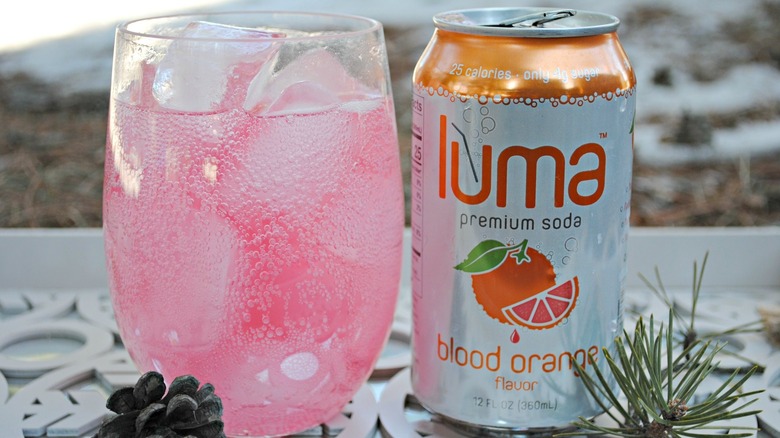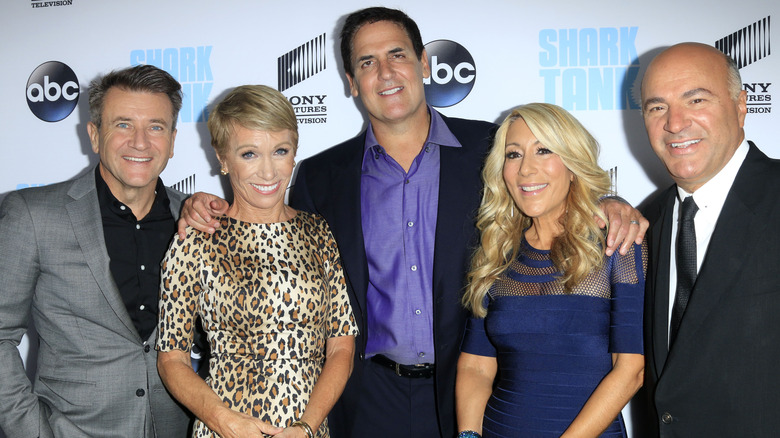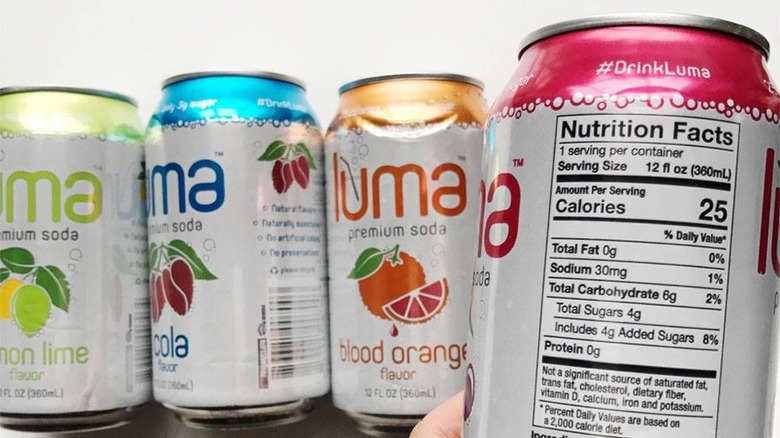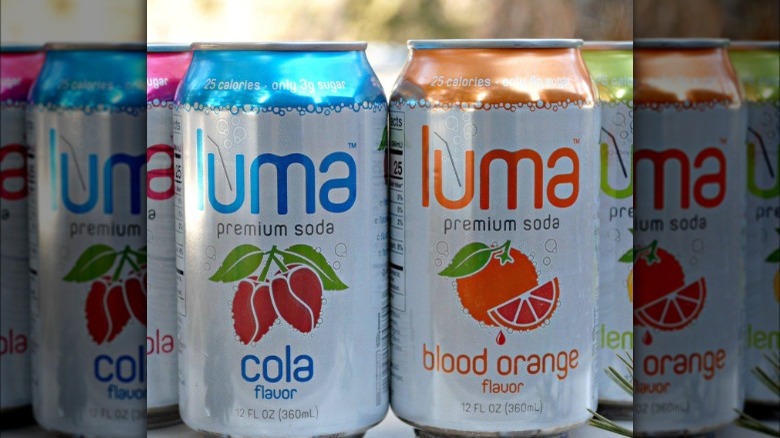Luma Soda: Here's What Happened After Shark Tank
In April 2019, Episode 19 of Season 10 of "Shark Tank" aired, featuring multiple products, including Jim Otteson's Luma Soda. The flavored, carbonated beverage was formulated to be a low-sugar swap for traditional soda.
Before crafting the beverage and starting Luma Soda, Otteson was a trial lawyer. However, he was also a self-proclaimed addict to diet soda, sometimes swilling a dozen or more sodas each day. Realizing that the habit was unhealthy and that aspartame may have negative effects on blood sugar, Otteson opted to create his own brand of flavored beverages.
With his daughter, Otteson tested out various combinations of flavors and sweeteners. While his initial results weren't promising, he eventually collaborated with a food scientist and landed on what became the final combination of sweeteners — a small amount of honey paired with monk fruit. He then started Luma Soda in January 2017, producing four flavors, including blood orange, lemon-lime, cola, and cherry cola — all with 25 calories and four grams of sugar. He then began selling the drink online as well as at a handful of locations around Palo Alto, where Otteson lives.
"We've gotten a lot of great feedback. People are really excited about it. I think it's a great product," Otteson told Palo Alto Online.
What happened to Luma Soda on Shark Tank?
Otteson approached the sharks on "Shark Tank," seeking $500,000 for a 20% share in the company. He opened up his pitch by using sugar cubes to exhibit the quantity of sugar in popular drinks like fruit juice, soda, and sports drinks. He then offered samples to the sharks.
Enticed by the idea of a healthier version of soda, the group first tried the cherry cola flavor. While Barbara Corcoran and Kevin O'Leary enthusiastically enjoyed it, Lori Greiner definitively did not. Most sharks enjoyed the blood orange flavor, but nearly all did not prefer the citrus or cola flavors.
When asked about his sales, Otteson shared that he had brought in about $180k so far that year. He said the feedback was positive on the 12-packs sold for $19.99 online, though he had a repeat customer rate of only 10%.
Otteson had invested approximately $1.75 million, some sourced through a home equity line of credit and by borrowing against life insurance, and had spent much of it on marketing. However, he also revealed that he purchased $600,000 worth of inventory in hopes of achieving more widespread retail distribution, an effort he says was botched by the salespeople he was working with.
Greiner was immediately out because she didn't like the product. Corcoran offered $250,000 if guest shark Rohan Oza would partner with her, but he declined. Mark Cuban and Kevin O'Leary declared they were out as well.
Luma Soda After Shark Tank
While Corcoran and Cuban both had some positive words for Otteson when they declined to invest, O'Leary had a heavier-handed approach. The investor, who goes by the nickname Mr. Wonderful, point blank advised the entrepreneur to sell off the remainder of his inventory and leave Luma behind. It appears that Otteson may have done just that.
Shark Tank episodes are filmed in June and September before the upcoming season. As of mid-September 2018, Luma Soda stopped posting to its Facebook page and didn't respond to comments on previous posts inquiring whether the soda was still available. Otteson's LinkedIn account lists January 2019 as the end date of his time at Luma Soda as Founder and CEO. While there's no indication of when the site may have gone down, the link to Luma Soda from its Facebook page does not work. Amazon is no longer selling the product, labeling it "currently unavailable." Given the timing, it looks like Otteson bowed out of the beverage business before the Shark Tank episode even aired.
What came next for Jim Otteson
After ending his entrepreneurial endeavor with Luna, Otteson returned to practicing law. According to his LinkedIn account, he began practicing as senior counsel at the Mountain View location of the large law firm Dechert LLP in October of 2018.
In 2020, Otteson flexed his entrepreneurial spirit again and opened his own law firm in Palo Alto that focused on litigation on behalf of plaintiffs in cases involving consumer protection, fraud, and intellectual property, among others. While his LinkedIn account lists his time as founder of Otteson Law as concluding in September 2021, the website remains up.
In October 2021, legal search firm Major, Lindsey & Africa welcomed Otteson as managing director of the Partner Practice Group in Palo Alto. The firm cited the Yale Law School graduate's 30 years of experience as a driving factor to bring him on board.




